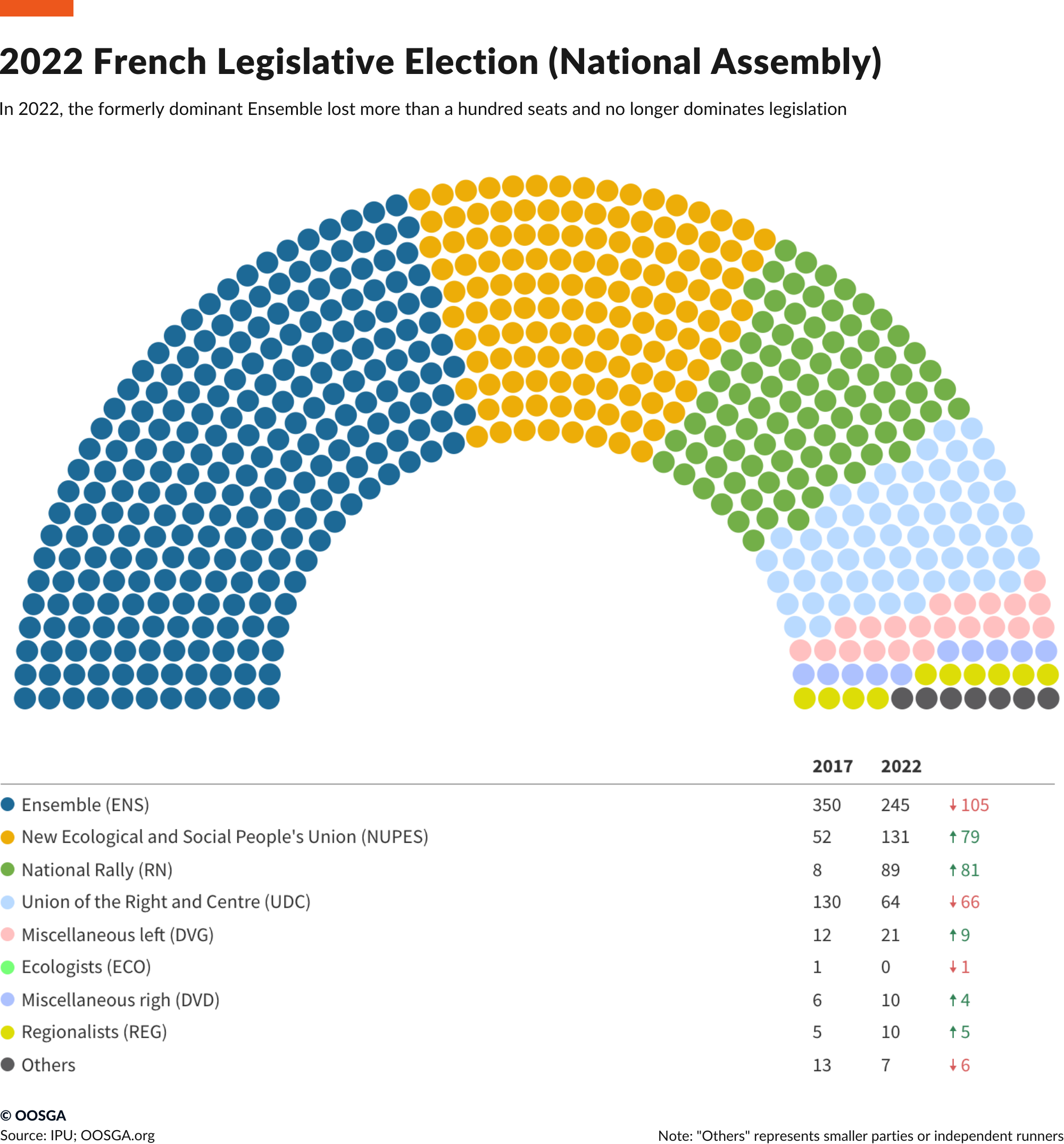Connect With Authors
*Your message will be sent straight to the team/individual responsible for the article.
The political foundations of France can be traced back to the French Revolution of 1789. The country was a founding member of the European Union (EU) and has been a leading player in European integration. However, over the years, French voters have become increasingly skeptical about the EU, but this skepticism appears to be declining due to the difficulties faced by the UK in leaving the bloc. The French economy is in competition with that of the UK to become the second largest in western Europe and is about three-quarters the size of the German economy.
The constitution of the Fifth Republic was established in 1959. The president is elected through universal suffrage for a five-year term. The parliament is divided into two chambers: the Senate (upper house) and the National Assembly (lower house). The Senate members are elected by an electoral college and serve for six years, with half retiring every three years, while the National Assembly members are elected through universal suffrage and serve a five-year term, although it can be dissolved by the president. After the outcome of the June 2022 legislative elections, in which the president Emmanuel Macron lost his parliamentary majority, he reshuffled his cabinet.
The invasion of Ukraine by Russia has prompted several policy changes in Europe. One major change is the increased military spending across the EU, with Germany committing €100 billion to defense. Despite these efforts, Europe remains heavily dependent on security guarantees from the US, even with a concerted effort to reach the NATO 2% of GDP spending target.
Energy security has become another priority for the EU, following Russia’s cut-off of natural gas supplies, which left the region short on energy. Efforts to find alternative sources of oil and gas, including liquefied natural gas (LNG), have been accelerated, and new infrastructure is being built at a fast pace. Companies are also substituting away from gas wherever possible. The permit process for renewables has been streamlined, although in the short term, the green agenda will see a setback in Europe as coal-fired power is extended. However, in the medium term, the shift to low-emission power sources will be accelerated, with France planning to increase investment in the nuclear sector, which accounts for 70% of domestic electricity production.
President Emmanuel Macron made significant progress in his first term on labor market and tax reform, and measures to make the business environment more competitive. This has supported domestic business and improved global perceptions of France as an investment location. However, without a majority in parliament in his second term, policymaking will slow down. The government is implementing a €30 billion investment plan to boost local industry and green initiatives, and a €100 billion medium-term recovery and stimulus plan, partly financed by EU funds, to ensure continued investment. Efforts to reduce public debt and slim down the public sector have not yet made progress due to generous pandemic spending and efforts to tackle rising energy prices. The proposed pension system reform, which would aid fiscal sustainability, was announced again in early 2023 and will be discussed by parliament in May. The initial reform bill has been amended to secure the parliamentary support of LR, and changes include increasing the current retirement age to 64, allowing people to retire after 43 years of contributions, and allowances for debilitating professions and parental leave.
-56.77 Billion
-2 %
-4.8 %
111.8 %
Emmanuel Macron won his second term as the President of France, causing relief among allies as the country won’t change its course in the midst of the Ukraine war from EU and NATO’s efforts to contain Russia’s military expansionism. The victory of the 44-year-old centrist prevented France and Europe from experiencing a seismic shift that would have happened if the firebrand populist, Marine Le Pen, had become the president. Despite conceding defeat, Le Pen still received her best-ever electoral result. Macron acknowledged that many voters voted for him to keep out Le Pen and pledged to reunite the divided country and address the anger of French voters that fueled Le Pen’s campaign. In his victory speech, Macron promised that “no one will be left by the side of the road.”
After the presidential election in April 2022 and the legislative election in June, the next round of elections, the municipal elections, will not take place until 2026. The next set of regional, presidential, and legislative elections is planned for 2027. Although it is uncommon, early legislative elections may be held if the current parliament becomes gridlocked.

-
5
-
27
12.5 $
42.89 $
3610 $
0.2298 %